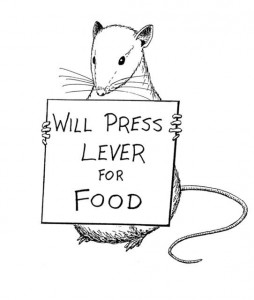Third Force Psychology
This has really been the blog post and part of the year that I’ve been looking forward to all semester after first looking over the syllabus. Humanistic Psychology is the branch of psychology that I have been most interested in learning about. Carl Rogers’ Client Centered Therapy approach was completely unheard of at the time, and his approach even became its own school of thought. Maslow and Rogers work has greatly contributed to the Psychology field and their humanistic view of therapy puts more emphasis on the fact that the client knows themselves best, and they are capable of revealing their problems themselves if in the right environment. With the switched emphasis on the individual (self-actualization, creativity, individuality), third force psychology offers a more optimistic outlook regarding the client and their personal, mental and psychological growth throughout therapy. As for me, someone who has experienced being in therapy first hand, the client-therapist relationship is very important as well as the environment that is formed. When I first read about humanistic psychology I could relate to it because I felt as if that was the type of therapy that I experienced and received much help from. I am an advocate of this style of therapy, and I believe that it is directly on point with its style and direction throughout the course of therapy.

